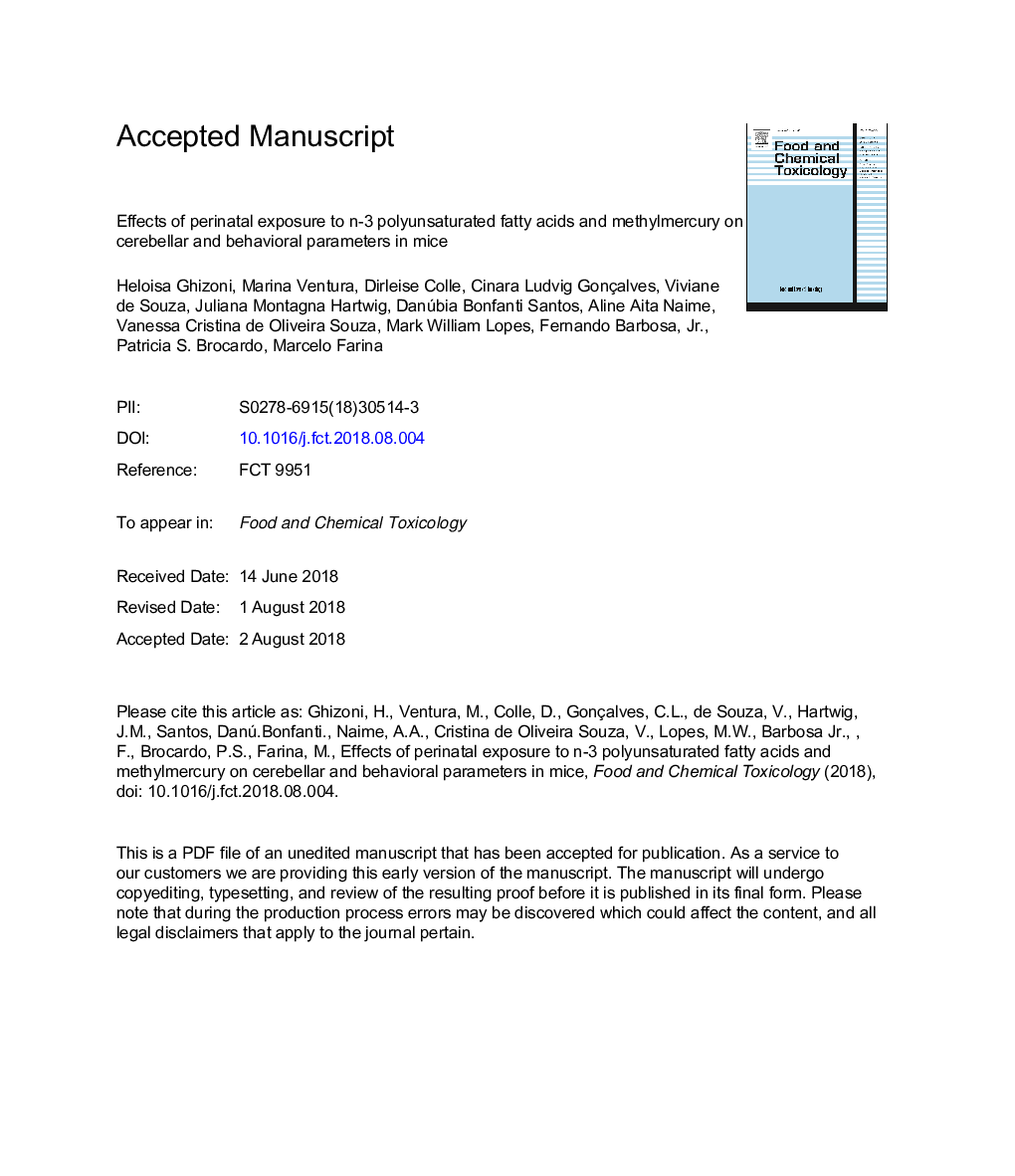| Article ID | Journal | Published Year | Pages | File Type |
|---|---|---|---|---|
| 8546446 | Food and Chemical Toxicology | 2018 | 53 Pages |
Abstract
Fish and shellfish, which represent important sources of nutrients (i.e., n-3 fatty acids), can contain significant amounts of methylmercury (MeHg), a neurotoxic compound. We investigated the potential neuroprotective effects of perinatal treatment with dietary n-3 fatty acids against MeHg-induced neurotoxicity. Pregnant mice were divided in 4 groups: (i) Control; (ii) MeHg; (iii) n-3 enriched diet and (iv) n-3 enriched diet + MeHg. The treatments were performed from gestational day 1 to postnatal day 21. Twenty-four hours after treatments, motor-related behavioral tests, as well as the analyses of cerebellar biochemical, histological and immunohistochemical parameters related to neuronal and glial homeostasis, were performed. Maternal exposure to MeHg induced motor coordination impairment and cerebellar MeHg accumulation in the offspring and n-3 fatty acids treatment did not prevent these effects. The immunocontent of proteins related to synaptic homeostasis, glial fibrillary acidic protein immunostaining and morphology were not significantly altered in the pups perinatally exposed to MeHg and/or n-3 diet. The results indicate that perinatal exposure to MeHg causes motor coordination impairment even with no evident changes on the evaluated cerebellar biochemical and histological parameters. The performed exposure protocol was unable to show beneficial effects of n-3 fatty acids supplementation against MeHg-induced motor coordination.
Keywords
Related Topics
Life Sciences
Agricultural and Biological Sciences
Food Science
Authors
Heloisa Ghizoni, Marina Ventura, Dirleise Colle, Cinara Ludvig Gonçalves, Viviane de Souza, Juliana Montagna Hartwig, Danúbia Bonfanti Santos, Aline Aita Naime, Vanessa Cristina de Oliveira Souza, Mark William Lopes, Fernando Jr., Patricia S. Brocardo,
